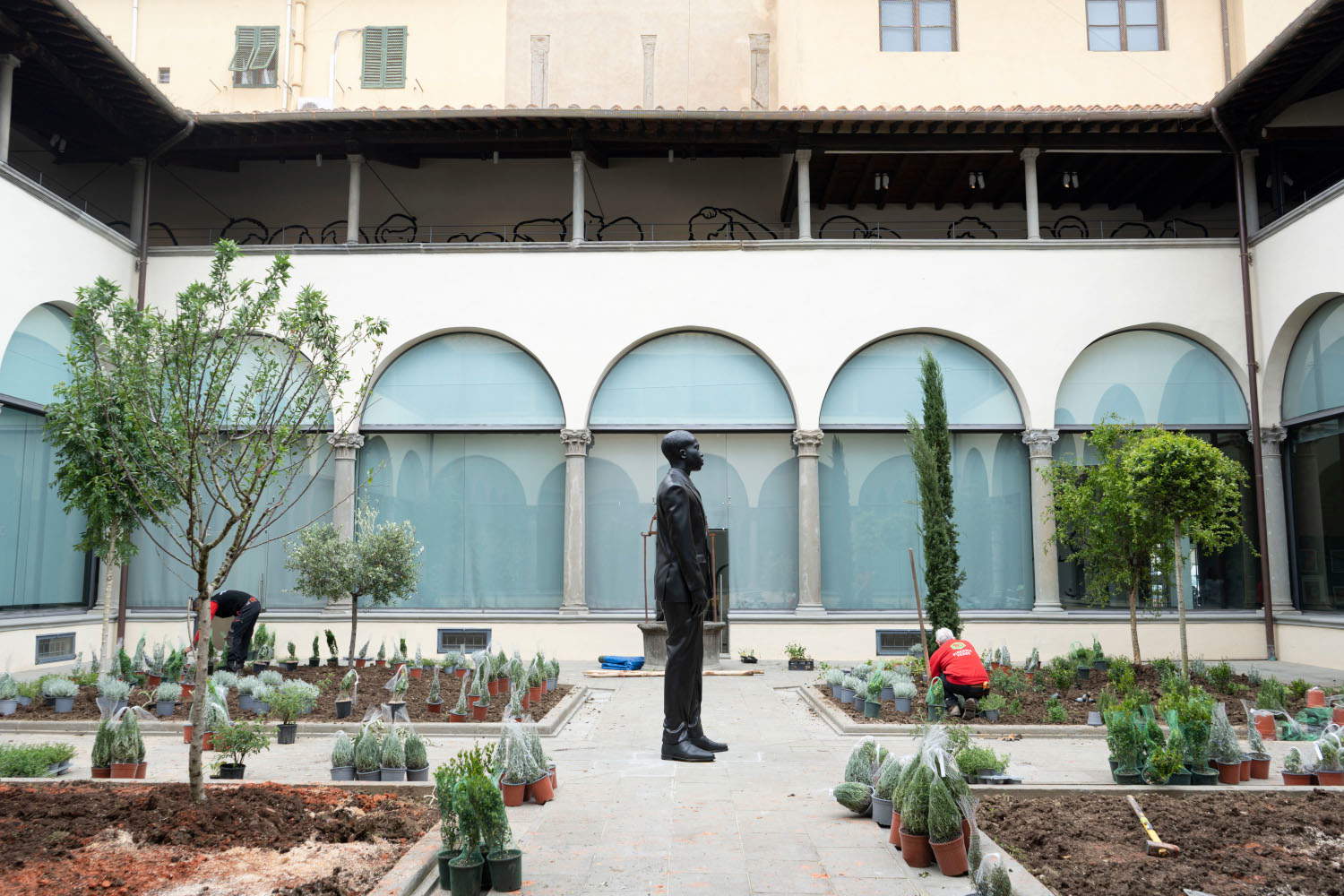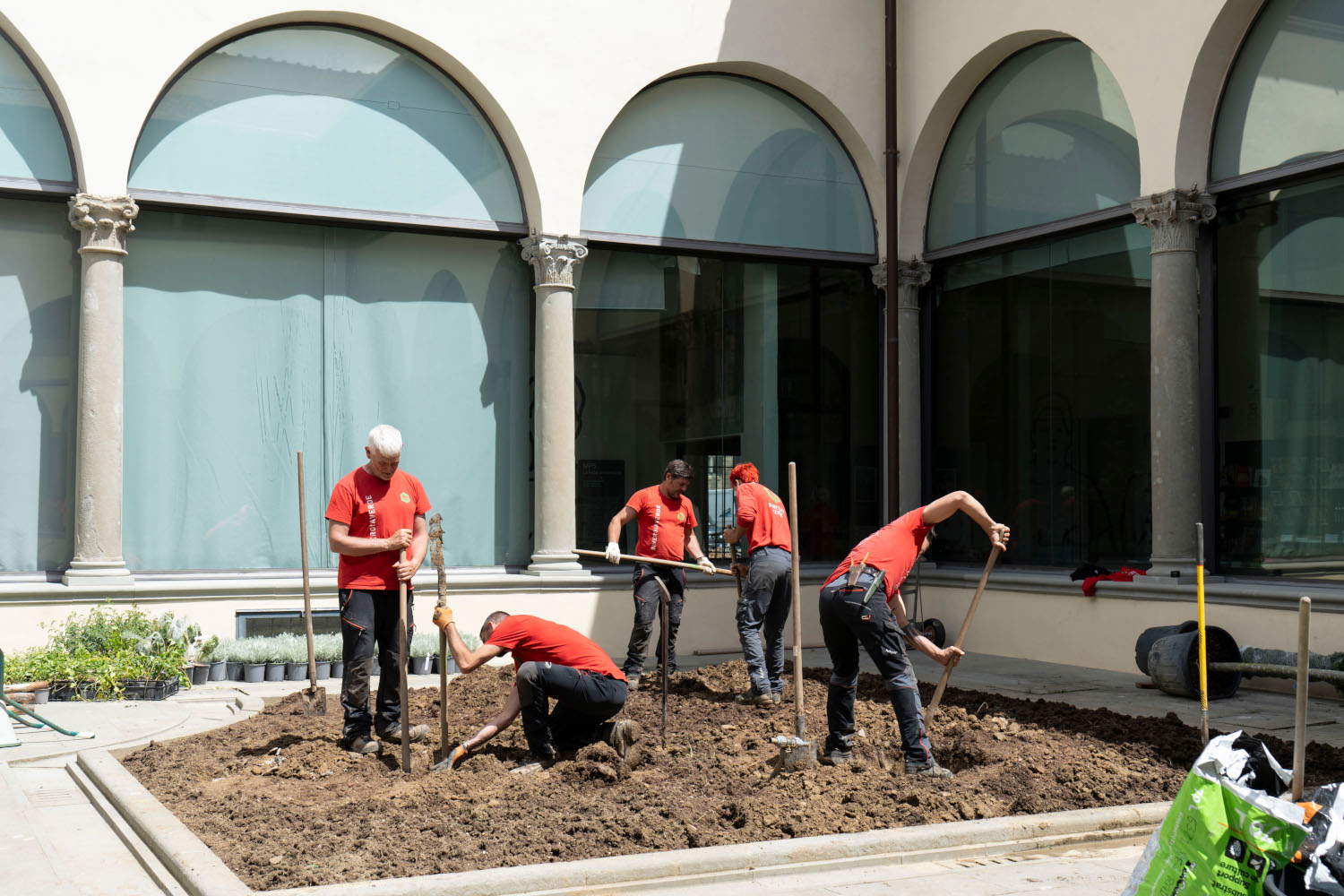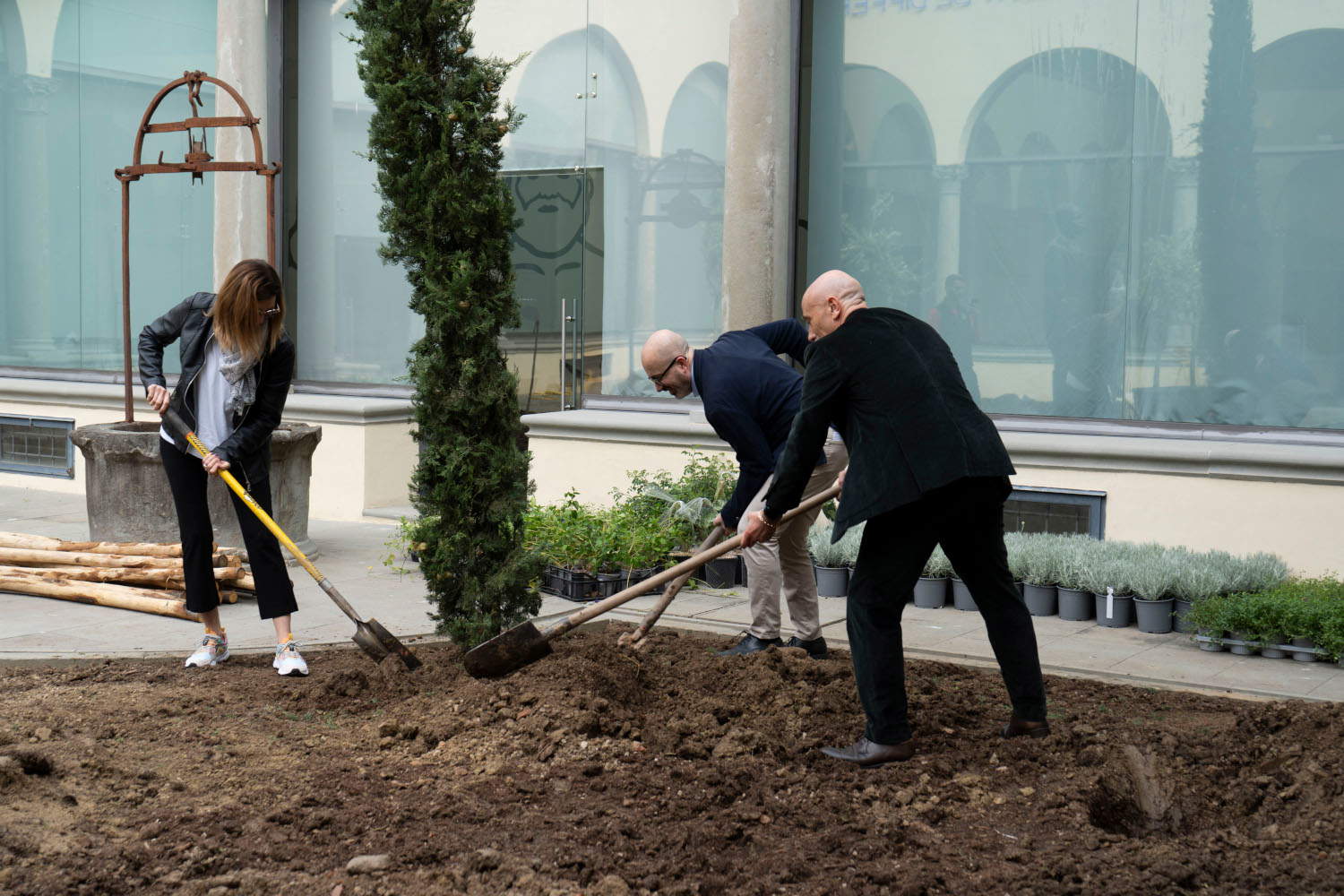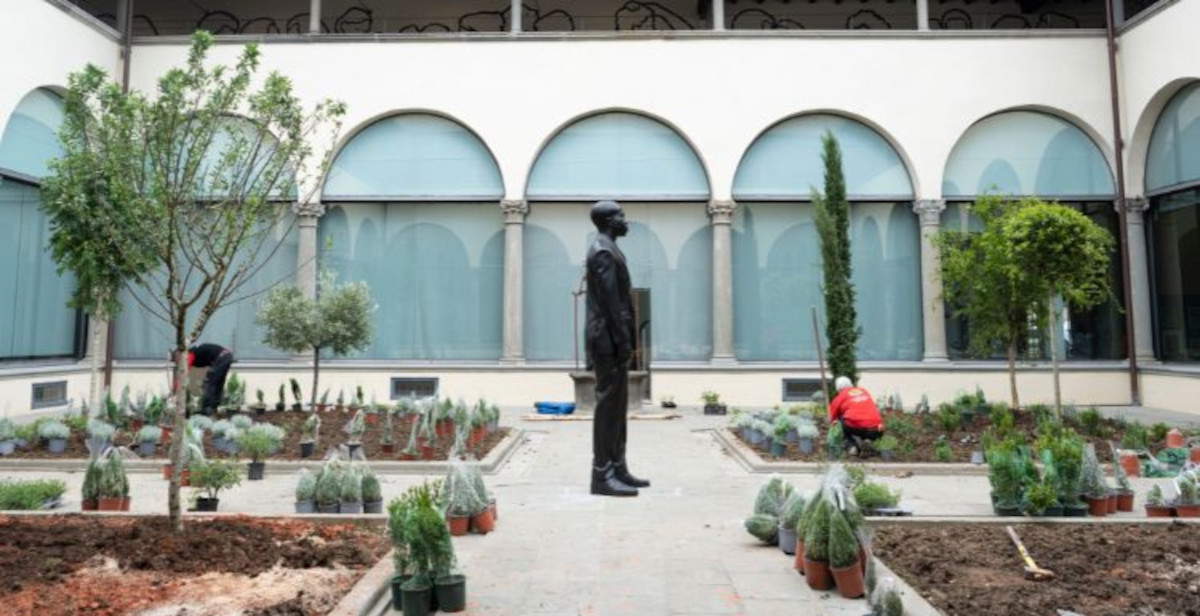A museum space that opens up to nature, welcoming a botanical and cultural redevelopment project into its heart. It is the Garden of the Leopoldine, a new intervention created inside the cloister of the Novecento Museum in Florence and previewed on May 7, in the presence of Deputy Mayor Paola Galgani, Culture Councillor Giovanni Bettarini, architect Francesca Fabiani and museum director Sergio Risaliti. The official opening to the public is scheduled for June 24. The project, unprecedented in form and location, is the result of a collaboration between the Museo Novecento, artist and landscape conservationist Haley Mellin and the nonprofit organization Re:wild, co-founded by biologist Wes Sechrest and renowned actor and environmental activist Leonardo DiCaprio. This is the first permanent garden designed within an Italian museum institution, set up in an architecturally and historically relevant space such as a Renaissance cloister.
“Everything begins in a garden,” said the Abbot of San Miniato a Monte Bernardo Gianni, “everything ends in a garden and everything is saved and found in a garden! The garden of genesis, the flowerbeds of the heavenly Jerusalem, and the risen Christ deemed by the Women a gardener make our growing spaces the expression of a culture where syllables are sown, words are cultivated, and the good fruit of dialogue is harvested. I heartily wish and bless your garden so that combed with Love it may be a mirror of heaven and a reliable promise of future and cohesive commensalities.”
“It is a beautiful project that is part of a path we have begun in the city to make it increasingly green, resilient and sustainable,” said Deputy Mayor Paola Galgani and Culture Councilor Giovanni Bettarini. “It is a courtyard of a museum in the historic center that is being ’re-naturalized’ exactly as provided for in the Green Plan we approved as a municipality. Putting trees, plants and lots of greenery inside a museum like this means carrying out this project by interweaving the environmental and artistic aspects. When we think about how we want to develop Florence we put together precisely these two aspects, sustainability and contemporary art, which we are putting into the Novecento Museum today.”

The intervention responds to contemporary ecological and cultural needs, with the aim of integrating environmental sustainability into museum work and public enjoyment. The Leopoldine Garden proposes an innovative model that aims to rethink the museum as an active space for reflection on pressing issues such as biodiversity, climate emergency and the environmental impact of human activities. Realized thanks to a multidisciplinary discussion between the museum’s management, curator Stefania Rispoli, landscape architect Matilde d’Oriano and Mellin herself, the garden is also a prelude to a solo exhibition of the artist’s work, scheduled at the Museo Novecento from June 24. The project is part of a broader museum “rewilding” strategy, promoted internationally by Re:wild, which aims to return man-made spaces to nature through lasting ecological solutions that respect the context.
“Taking care of a garden means taking care of us, our bodies and our minds,” said Sergio Risaliti, Director of the Museo Novecento. “The Leopoldine Garden, created in collaboration with artist Haley Mellin and the nonprofit organization Re:wild, is a response to the current times, in which the current focus on the planet is still not enough to accelerate a change and greater attention to the environment. With this garden, the Museo Novecento aims to raise awareness of the ecological emergency, climate change, and carbon emissions also related to the life and activities of the Museum. We would like the Leopoldine Garden to be open to everyone as a place of contemplation and rest, where one can read a book and start new conversations, a place where one can think about the present and the future and rethink the past.”
“This is a revolutionary project, we are inspired by the leadership of the Museo Novecento for this pilot initiative to ’rewild the museum’! It is an incredible way to combine nature and culture in such an inspiring museum,” said Dr. Wes Sechrest, CEO of Re:wild.
The choice of plant species planted was careful and targeted: about twenty varieties of shrubs and trees selected for their connection to native Tuscan flora, cultural value, and indigenous origin in the territories of the region. The goal is to reconstruct vegetation consistent with the history of the site, restoring the cloister’s original function as a cultivated, lived and traversed space. The botanical intervention, while fitting into a defined and constrained architectural context, is designed to respect the physical and environmental characteristics of the site, harmonizing with the structure of the cloister and ensuring sustainability over time. The Leopoldine Garden thus becomes a living environment, able to evolve and regenerate in relation to climate change, also contributing to the mitigation of high temperatures during the summer months. One of the main goals of the initiative is precisely to raise visitors’ awareness of ecological issues through direct experience. The presence of natural vegetation, adapted to the local climate, is also a way to promote the reduction of emissions and the adoption of more sustainable practices within cultural spaces.
The garden will be accessible to the public as an area for rest, reflection and meeting. Its function extends beyond the ornamental one, reactivating the original use of the cloister as an open, lived and traversed space. Finally, the name of the project evokes the historical memory of the building that houses it: between 1780 and 1974, in fact, the complex of the former Leopoldine Schools was home to an educational institution dedicated to young women in poverty, founded by Grand Duke Peter Leopold I of Tuscany.


 |
| Florence, Novecento Museum opens the Leopoldine Garden to the public |
Warning: the translation into English of the original Italian article was created using automatic tools. We undertake to review all articles, but we do not guarantee the total absence of inaccuracies in the translation due to the program. You can find the original by clicking on the ITA button. If you find any mistake,please contact us.